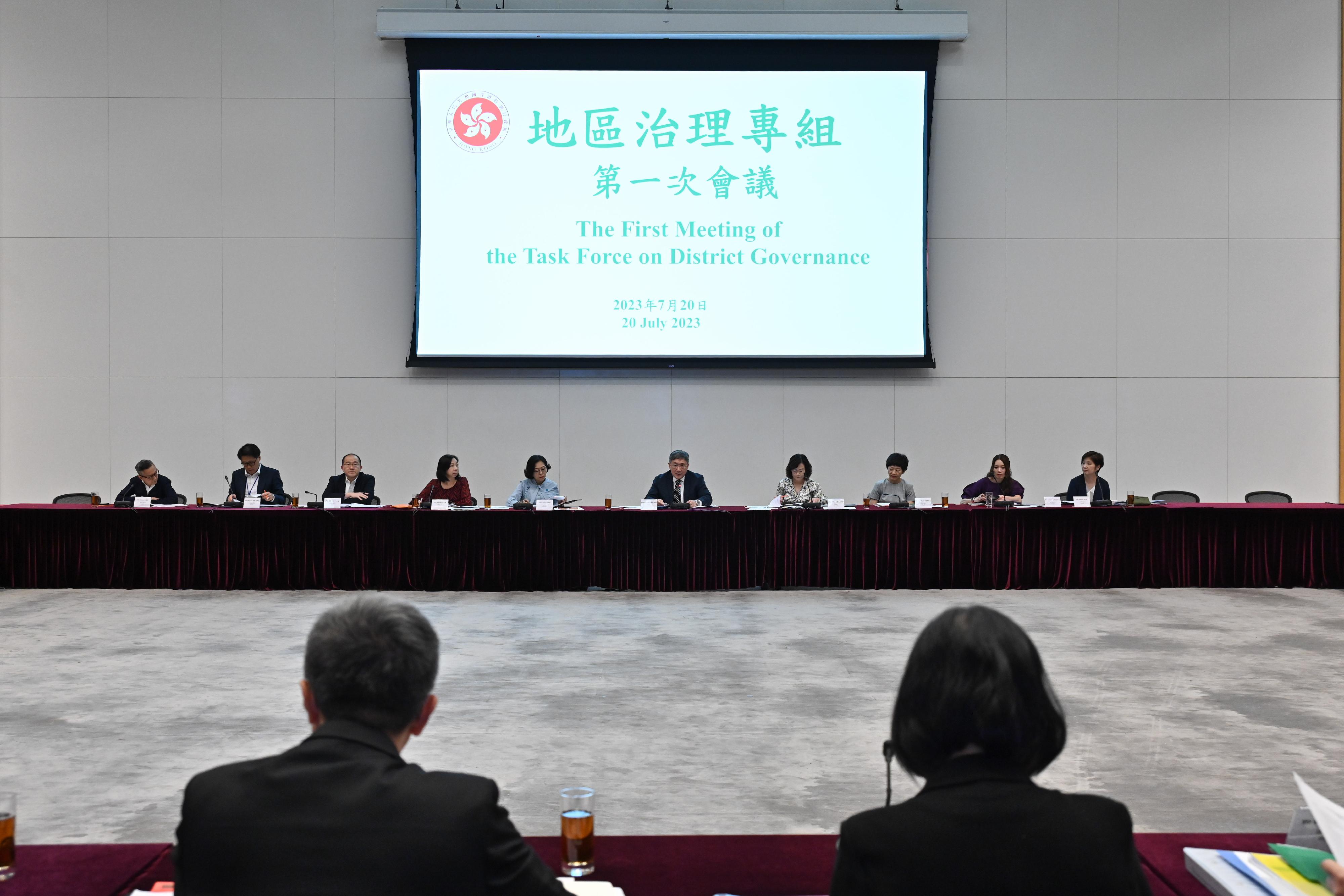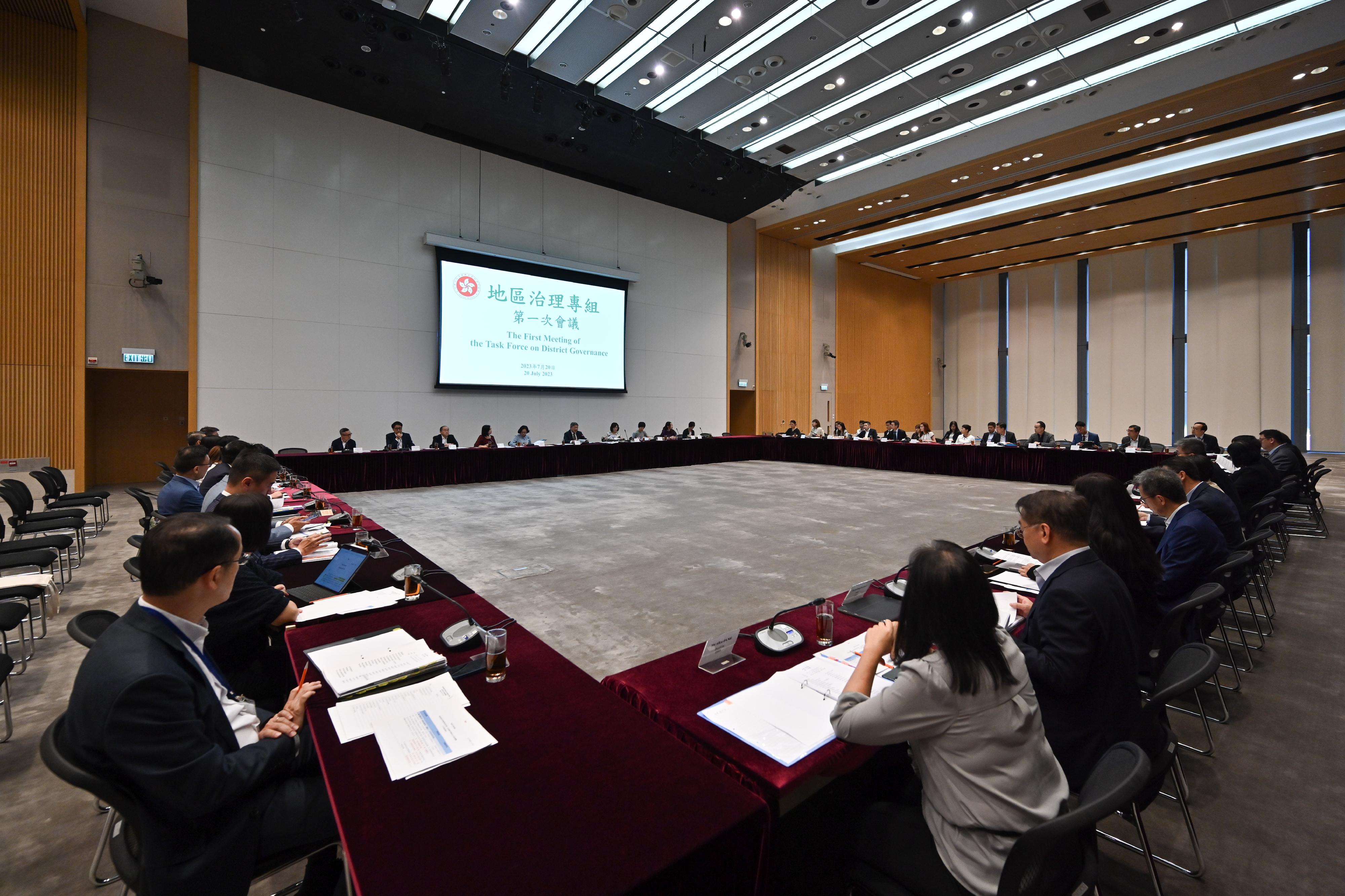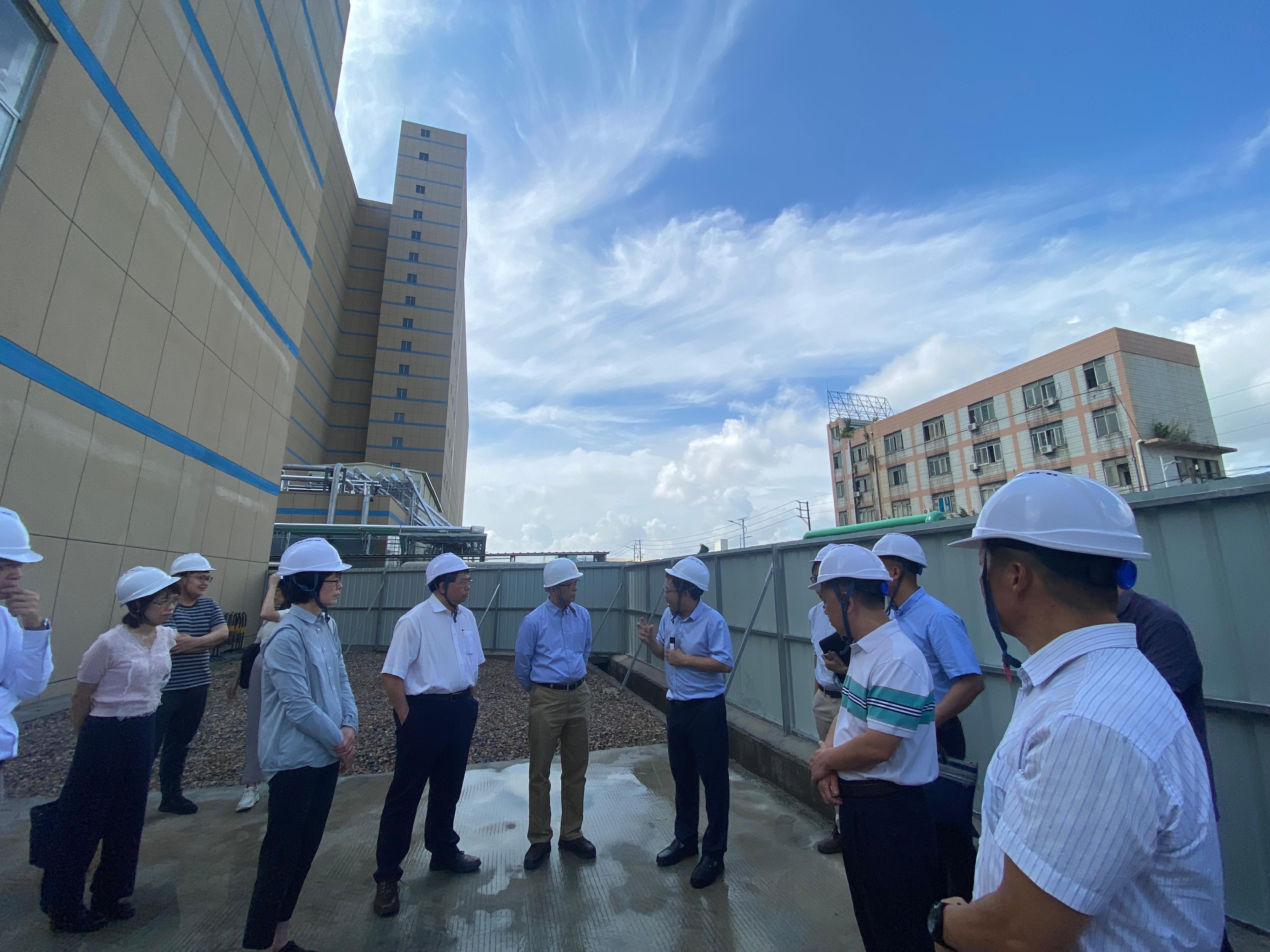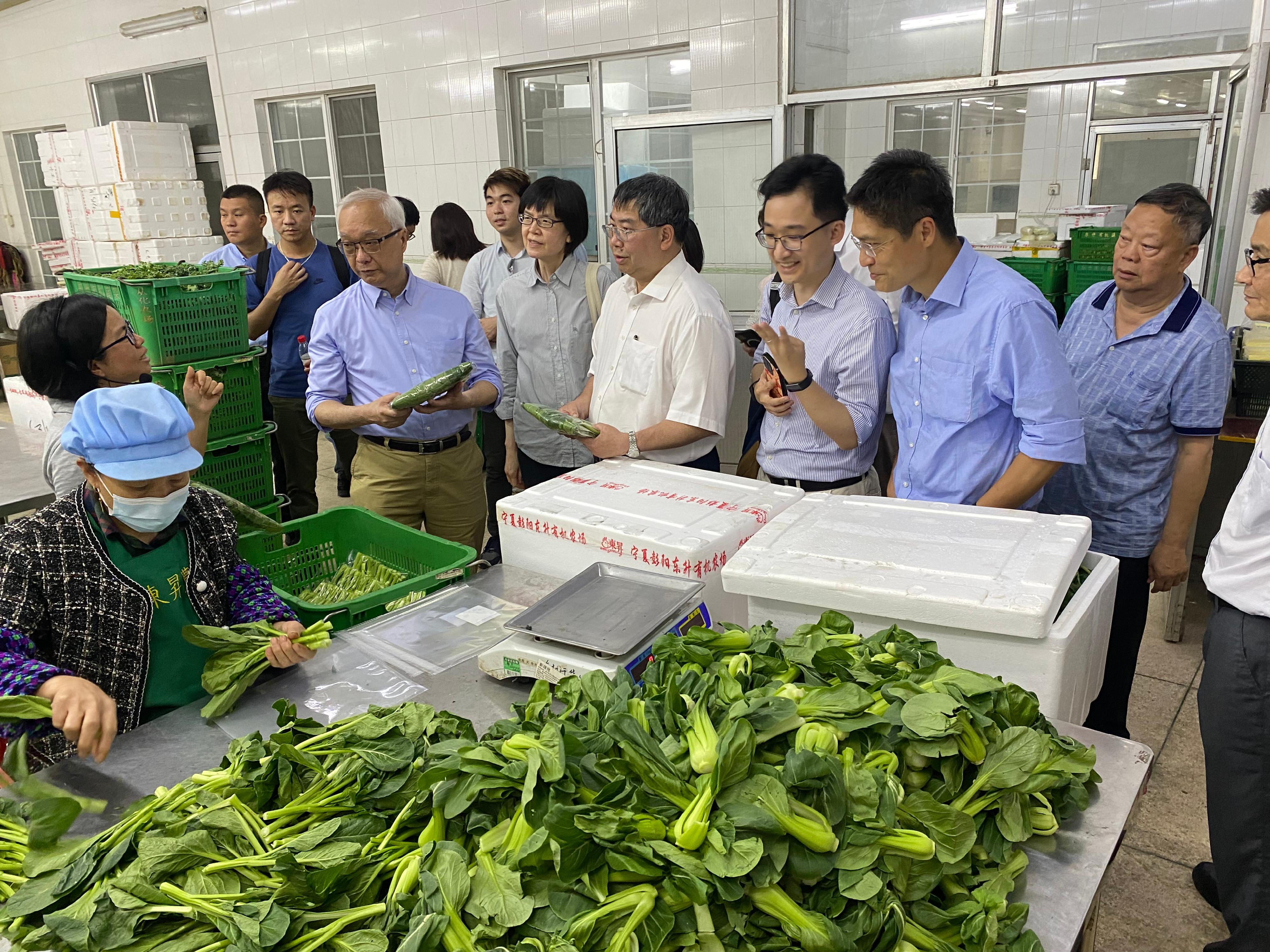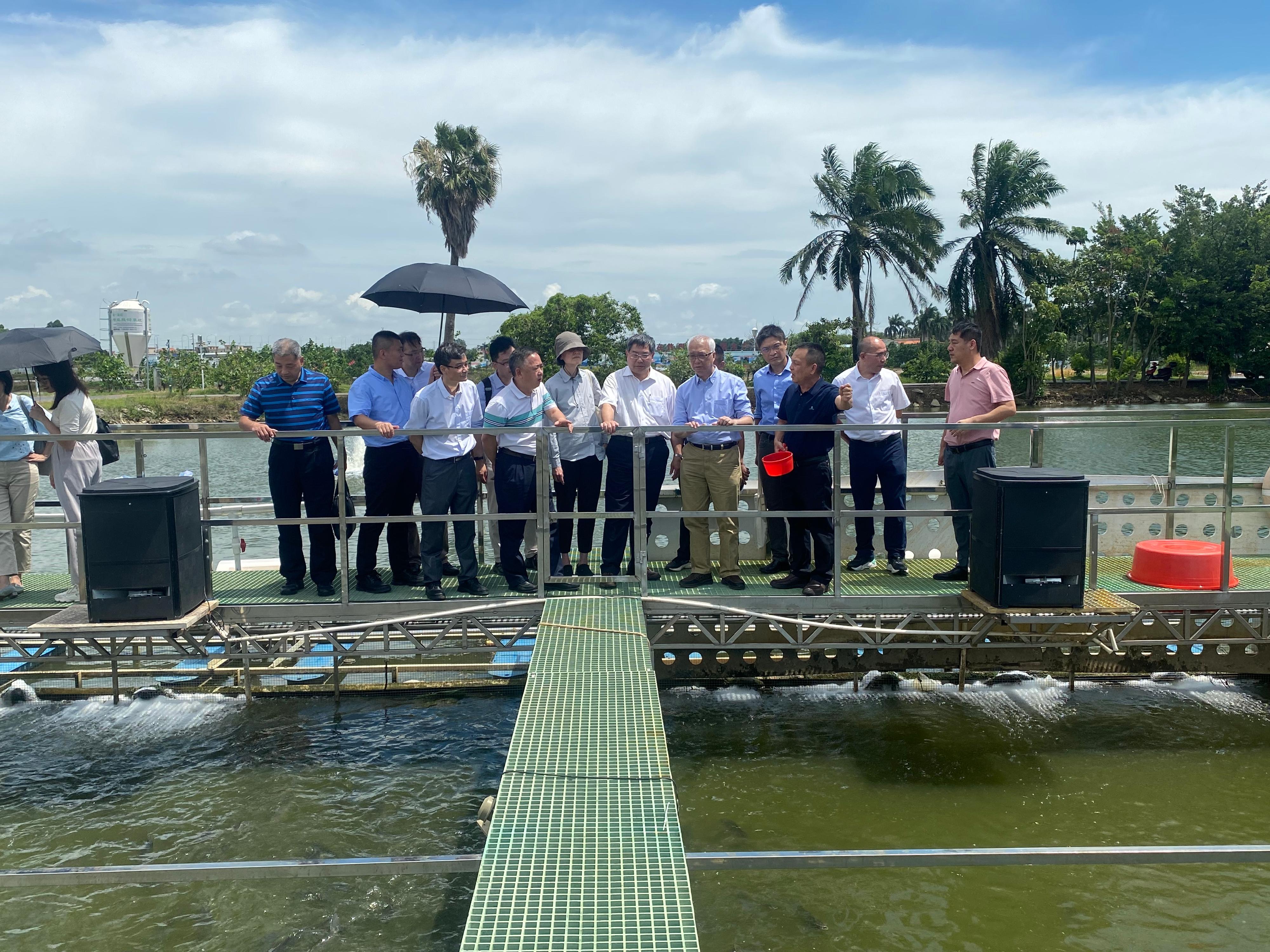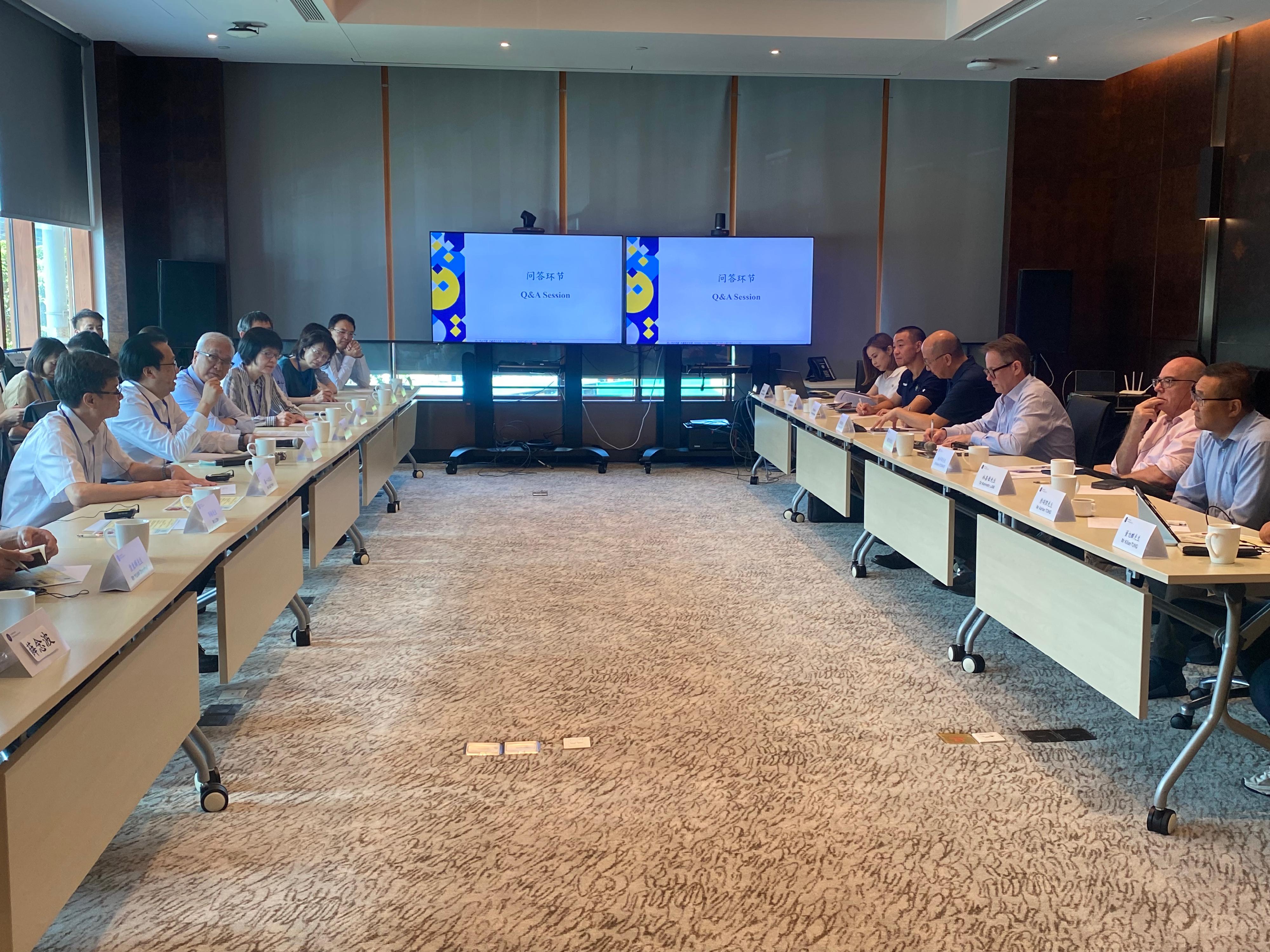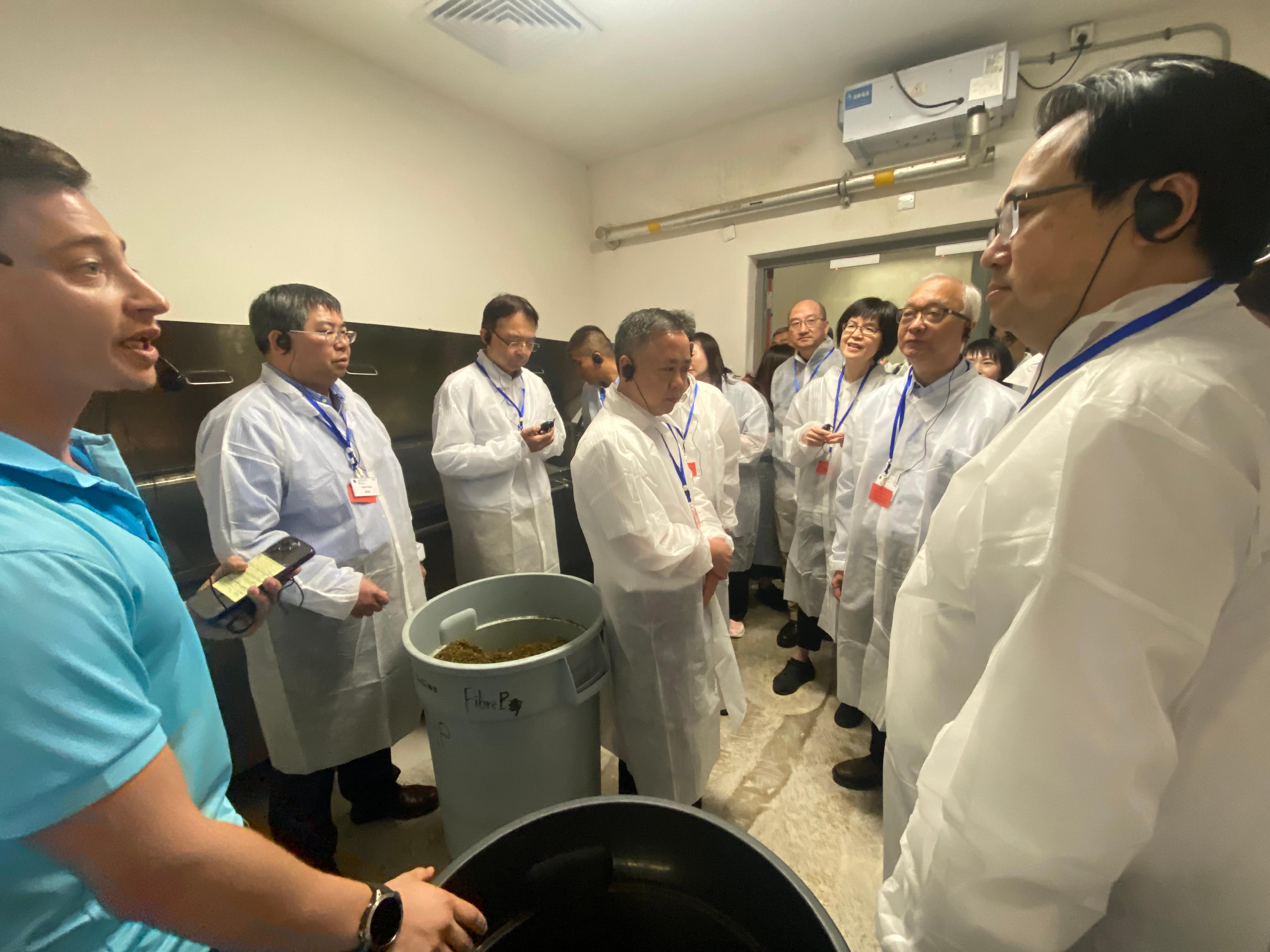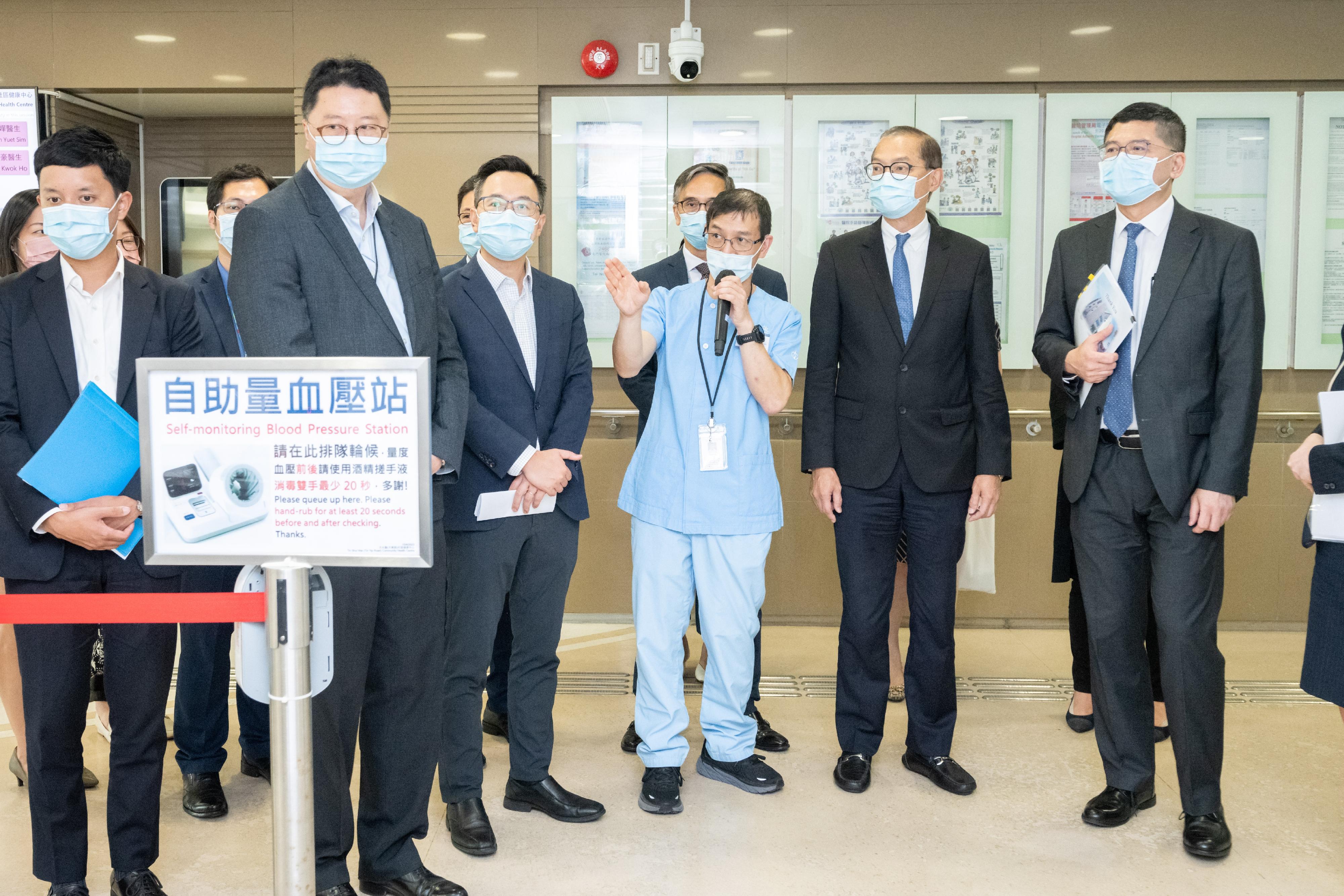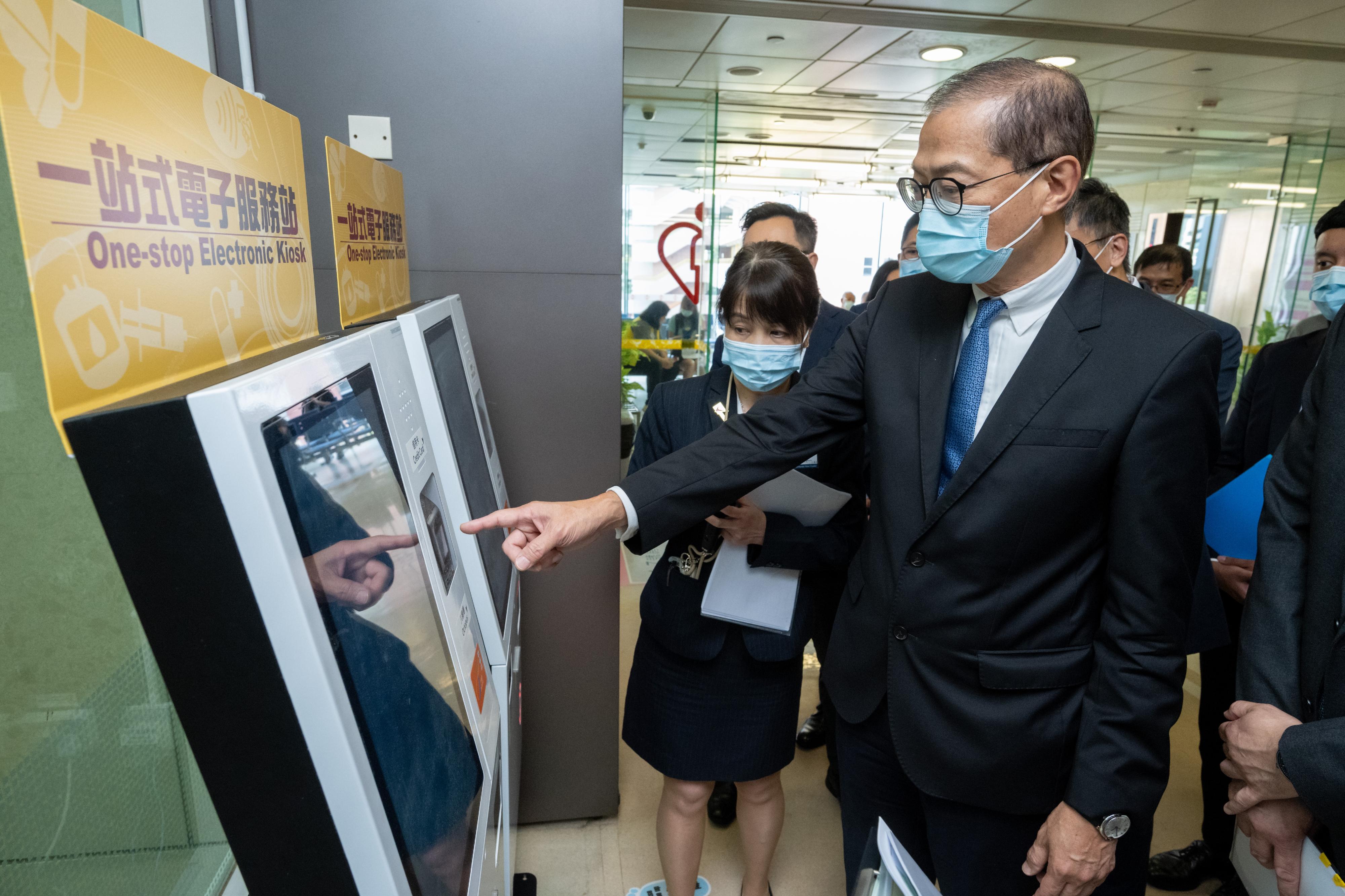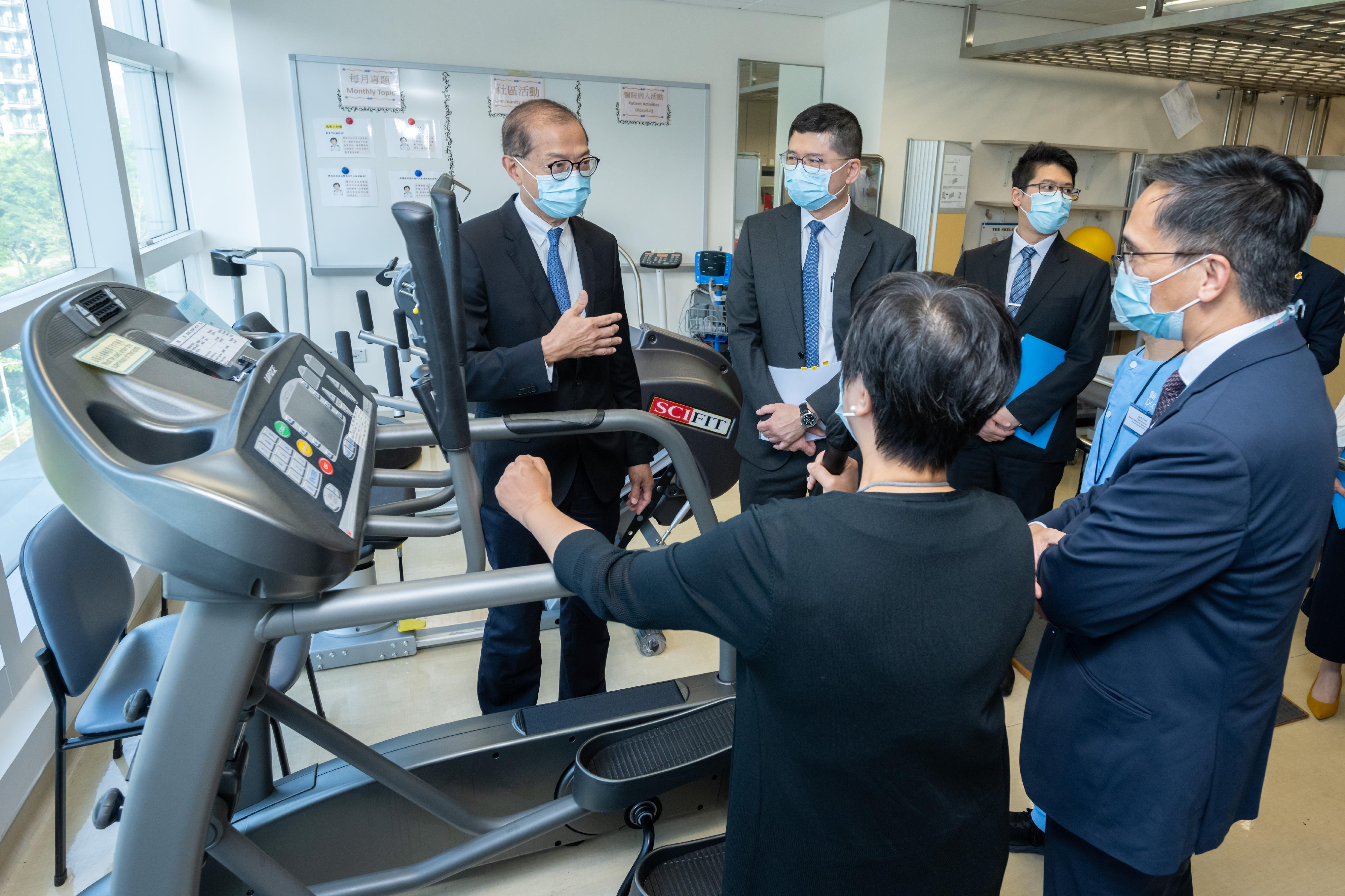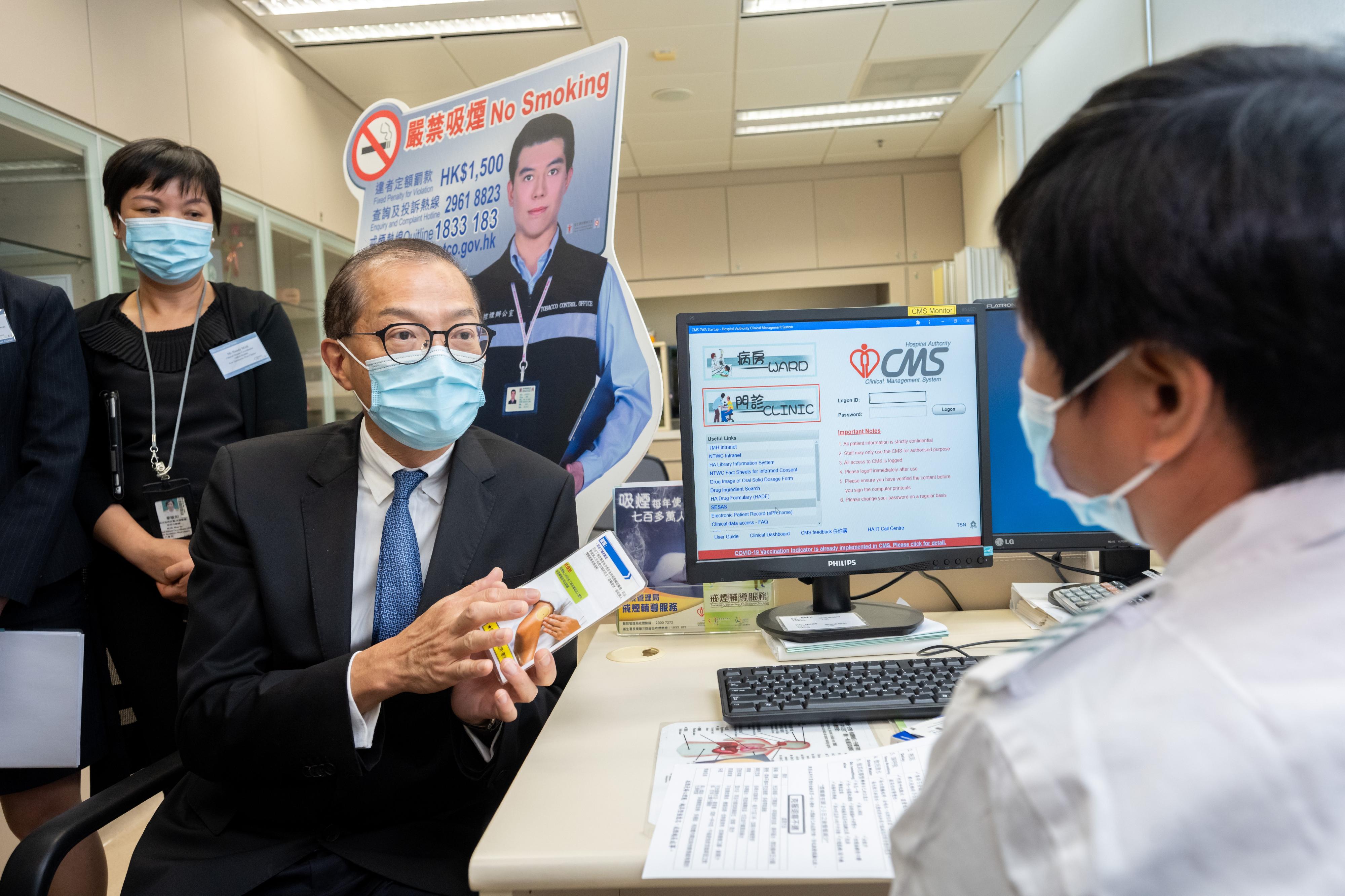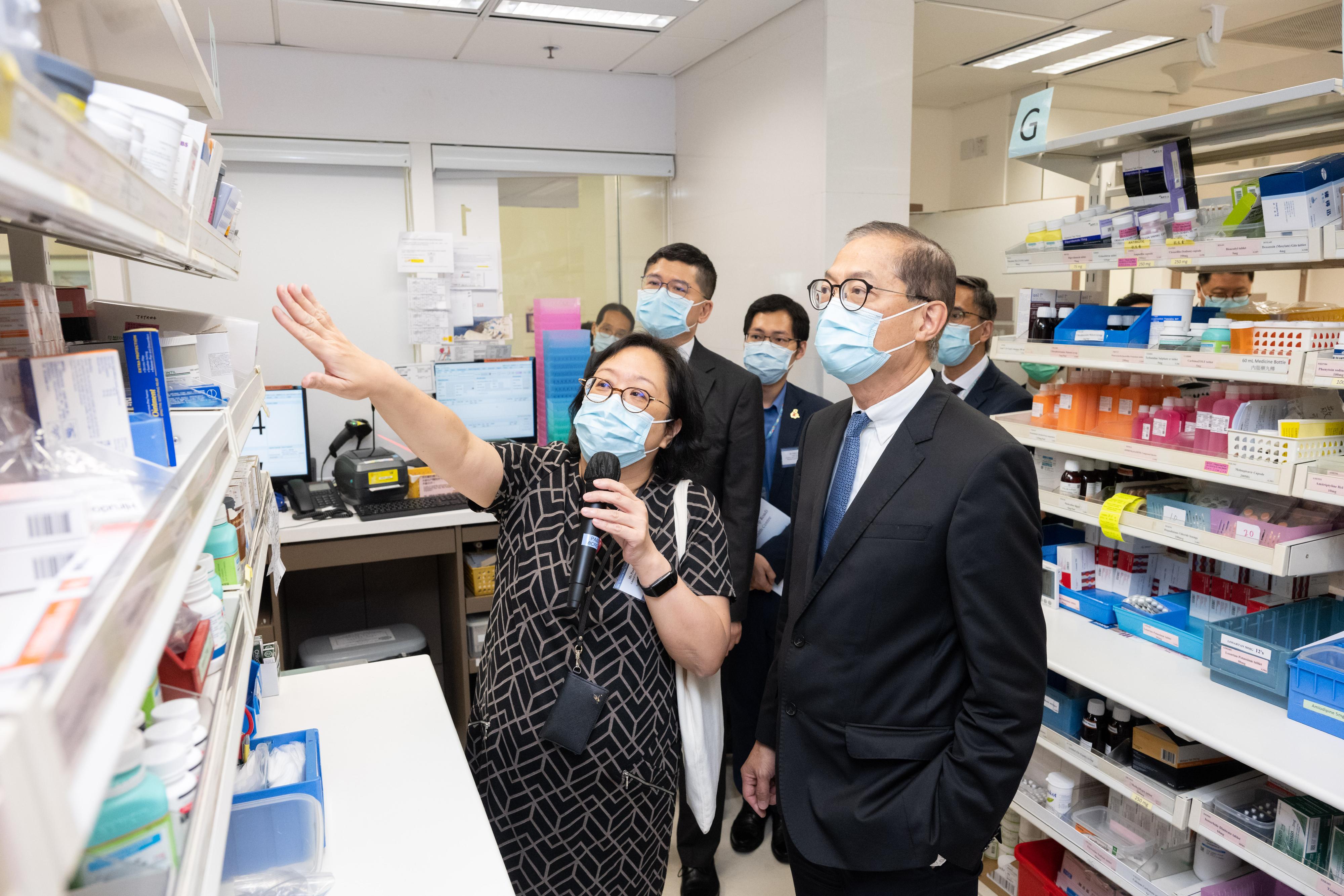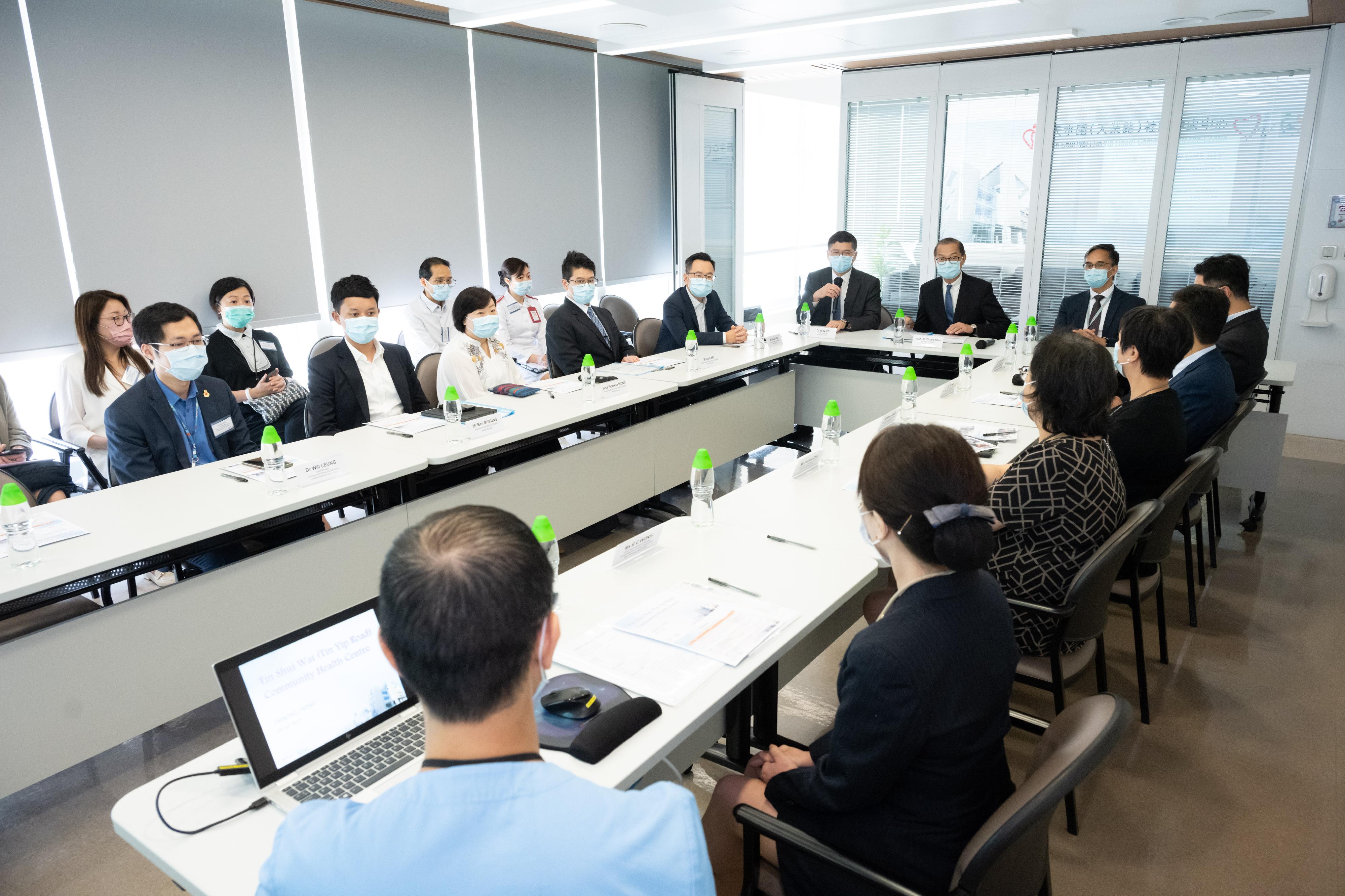The Task Force on District Governance chaired by the Deputy Chief Secretary for Administration (DCS), Mr Cheuk Wing-hing, convened the first meeting today (July 20) to proactively follow up on the implementation of initiatives endorsed by the Steering Committee on District Governance in respect of five key district issues.
Mr Cheuk said, “District governance is inextricably related to people’s livelihood. The Government will endeavour to improve district governance with a view to addressing issues of concerns to the community. I will be fully committed at the Task Force to spearheading and co-ordinating district work, steering departments to implement policy measures and follow up on district issues, such that the Government’s services at the district level can be more effective and targeted in response to the needs of the public.”
The Steering Committee chaired by the Chief Secretary for Administration (CS) held the first meeting on July 12 and formulated strategies in relation to five key areas of community interests. The Task Force discussed at the meeting the implementation details and timetable as follows:
(1) Expanding after-school care service and enhancing support for parents
The Social Welfare Department (SWD) will launch the School-based After School Care Service Pilot Scheme in the new school year to allow students in need to stay after school to receive care and learning support. The Education Bureau has started identifying primary schools with more target students (underprivileged/single-parent families) in districts with a higher concentration of subdivided unit households (namely Kowloon City, Yau Tsim Mong, Sham Shui Po, Kwun Tong, Kwai Tsing and Tsuen Wan). The target is to commence a one-year programme starting from this September and provide 50 primary schools with a maximum of 3 000 service quotas in total.
(2) Caring for the elderly and enhancing community support
The Leisure and Cultural Services Department will replace and improve existing fitness equipment in various districts, including firstly setting up additional fitness equipment for the elderly in 12 leisure venues in this financial year, increase recreational activities suitable for elderly, and provide umbrellas for loan to the elderly in need on a trial basis in 18 major parks across the territory in the fourth quarter of this year.
The SWD will strengthen its resources and efforts in identifying and caring for elders in need, including identifying hidden elders and carers in need through home visits by the District Services and Community Care Teams (Care Teams) for referral to the SWD and social welfare units for follow-up and support. The target is to launch trials with the Care Teams of Tsuen Wan and Southern Districts by the end of this year.
(3) Fostering clean markets and mobilising the community to participate in anti-rodent work
In addition to stepping up efforts to clear up locations with ongoing irregularities, the Food and Environmental Hygiene Department (FEHD) will improve the environmental hygiene of public markets and cooked food markets on various fronts, including improving the hardware of toilets in about 30 venues and their cleansing services; strengthening inspection and enforcement against irregularities such as shopfront extensions by stalls; and expediting the overhaul of market stalls by utilising “Design for Manufacture and Assembly” and “Modular Integrated Construction” on a trial basis at suitable venues on Hong Kong Island, in Kowloon and the New Territories.
The FEHD will also adopt a multi-pronged approach in enhancing anti-rodent work, including strengthening overnight rodent control teams; active adoption of new rodent detection and control technologies (e.g. artificial intelligence and thermal imaging); joining hands with relevant departments to drive participation by all sectors in anti-rodent work, etc.
(4) Enhancing public order and combatting crimes on all fronts
The Police will further strengthen patrol coverage as well as the work and visibility of enforcement, and step up patrols and installation of closed-circuit television at crime blackspots and crowded hotspots based on risk assessment and district intelligence. The Customs and Excise Department will also intensify its efforts in combatting illicit cigarettes, copyright infringement offences and unfair trade practices, including conducting patrols at popular tourist shopping spots and parallel trading hotspots.
(5) Improving pedestrian facilities and ensuring road safety
The Highways Department will expand the repaving of footpaths, with the target of firstly commencing works on a total of 20 sections of public footpaths by the end of this year. The Transport Department will also install new auxiliary devices with red light beam projections at pedestrian crossing blackspots in various districts, with the target of completing installation at a total of 100 locations by the end of next year.
The above apart, the Task Force also reviewed the experience of displaying publicity materials in celebration of the 26th anniversary of the establishment of the Hong Kong Special Administrative Region, and instructed departments to start preparatory work for making related arrangements to mark the 74th anniversary of the founding of the People’s Republic of China. The Task Force also received report on the work of the Care Teams and directed Care Teams to enhance co-operation with departments in suitable service areas.
Mr Cheuk pointed out to attending Heads of Departments that the Central Government attaches great importance to the work of the Hong Kong Special Administrative Region in improving district governance. He urged departments to actively follow up on related work and demonstrate to the community that the Hong Kong civil service is efficient, outstanding and wholeheartedly working for the people, with a view to enhancing the public’s sense of achievement and contentment.
  He continued, “I am confident that under the refined district governance structure, with the collective efforts and collaboration of departments, we will certainly be able to live up to our mandate and succeed in accomplishing the mission.”
The Government announced on May 2 the proposals on improving district governance, which include reforming the District Councils and strengthening the district governance structure. Under the new district governance structure, the Steering Committee chaired by the CS will be responsible for taking a leading role in the overall strategies, policies and measures, work priorities and resource allocation of district governance, whereas the Task Force chaired by the DCS will be responsible for steering and co-ordinating the district work of various bureaux and departments, implementing the poilicies and measures concerned, and, as necessary, co-ordinating inter-departmental and/or cross-district issues.
The terms of reference and membership of the Task Force are in Annex I and Annex II respectively.
